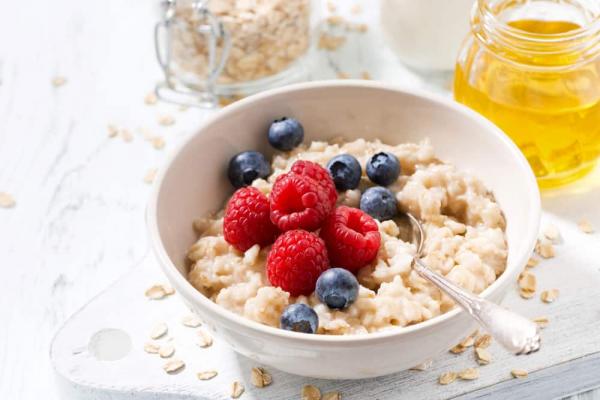
When it comes to getting pregnant, there are a lot of factors a woman can't control. You're born with your genetics; but you do have control over your diet. And fortunately, more studies are revealing that diet has a significant effect on fertility. Eating these four types of food can help increase your chances of getting pregnant:
1. Complex carbs (for insulin control)
Experts recommend women trying to get pregnant eat less simple carbs (white bread, white rice, cake, soda, etc.) and eat more complex carbs (whole grains, legumes, fruits and veggies, etc.). This is a good rule of thumb for anyone, but it's especially important for fertility because of blood sugar, or insulin levels. Simple carbs generally cause higher insulin levels.
"Previous studies have found that high insulin levels appear to inhibit ovulation," Walter Willett, M.D., a professor of nutrition and epidemiology said. "In our study, women whose diets had the highest glycemic load (a measure of the amount of bad carbs eaten and how quickly they're turned into blood sugar) were 92 percent more likely to have ovulatory infertility than those whose diets had the lowest glycemic load."
2. Plant protein
A Harvard School of Public Health study of more than 18,000 women found that women who consumed high amounts of animal protein and trans fats were more likely to have an ovulatory disorder. Animal proteins are found in anything from beef to cheese to eggs.
By no means do women need to cut out their animal products altogether; simply replace some animal proteins for plant proteins to decrease your overall animal protein consumption in your diet. Some great sources of plant protein include beans, nuts (and nut butters), soybeans and whole grains.
3. Nuts and oats (for zinc)
One of the key nutrients needed to get pregnant is zinc, which can be found in most nuts and in oats.
"Zinc is just one component, but it works with more than 300 different enzymes in the body to keep things working well," Hethir Rodriguez, C.H., C.M.T. said. "Without it, your cells can not divide properly; your estrogen and progesterone levels can get out of balance and your reproductive system may not be fully functioning."
Rodriguez said zinc plays a vital role in egg production, maintaining proper follicular fluid levels and hormone regulation. So chop up some almonds and toss them in a hot bowl of oatmeal.
4. Fruits and veggies (for vitamins and minerals)
When you're trying to get pregnant, vitamins and minerals are important — and nature's best source of vitamins and minerals is a wide range of fruits and vegetables.
Leafy greens, like spinach and lettuce, are high in the B vitamin folate. "Eating foods rich in folate during preconception and pregnancy can help prevent neural tube birth defects, such as spina bifida," according to BabyCenter. Citrus and strawberries, which are high in vitamin C, help you absorb iron, which is another vital nutrient for getting pregnant. A good rule of thumb is to try to "eat the rainbow" when it comes to produce — different colors often signify different nutrients, and the wider range you eat, the better.
Your diet is in your control, so take advantage of it and eat the best foods you can for your fertility.

